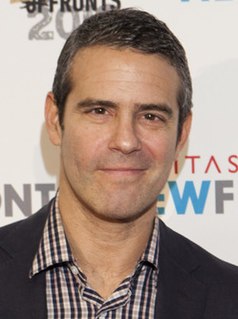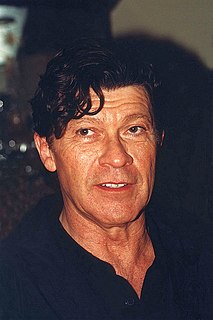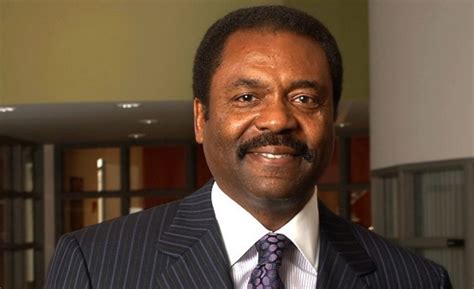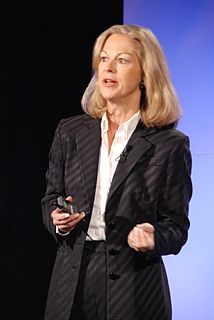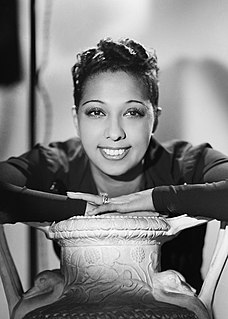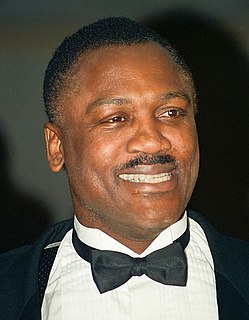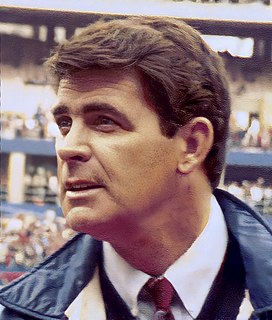Top 757 Louis Brandeis Quotes & Sayings
Explore popular Louis Brandeis quotes.
Last updated on April 14, 2025.
And he [Louis Brandeis] talks to his young acolyte, Horace Kallen, who wrote this beautiful book called Cultural Pluralism, and he comes to believe that by being better Jews, or better members of our ethnic group, we can be better Americans, because America is like an orchestra in which identity is defined by the diversity of perspectives that we bring to the table.
Louis Brandeis beloved uncle, Lewis Dembitz, was an ardent abolitionist. His mother was an abolitionist in Kentucky at a time when Brandeis remembered hearing the shot from the confederate soldiers after the second battle of Bull Run. Amazing to think that he heard that and I studied with one of his last law clerks in college. And that encapsulates almost all of American history.
I think that anybody from the 20th century, up to now, has to be aware that if it wasn't for Louis Armstrong, we'd all be wearing powdered wigs. I think that Louis Armstrong loosened the world, helped people to be able to say "Yeah," and to walk with a little dip in their hip. Before Louis Armstrong, the world was definitely square, just like Christopher Columbus thought.
In the words of Louis Brandeis, the Supreme Court justice, we have a choice between a democracy or vast concentrations of wealth. We have vast concentrations of wealth which has bought its way into our democracy with its political leaders who exemplify the merger of that economic and political elite.
The historical resonances are sharp. [Louis] Brandeis is nominated on Jan. 28, 1916. Confirmed on June 1. Waits 125 days between nomination and confirmation, which remains an unbroken record, although Merrick Garland will surpass it in July, if my math is right. Anti-Semitism was definitely not the central reason for the opposition, which tended to focus more on his anti-corporate radicalism, but it was a theme.
I don't think he would have had any trouble answering Justice Sonia Sotomayor's excellent challenge in a case involving GPS surveillance. She said we need an alternative to this whole way of thinking about the privacy now which says that when you give data to a third party, you have no expectations of privacy. And [Louis] Brandeis would have said nonsense, of course you have expectations of privacy because it's intellectual privacy that has to be protected. That's my attempt to channel him on some of those privacy questions.
Unlike [Woodrow] Wilson, Louis Brandeis did not support the segregation of the federal government. He was personally courteous to African Americans. He advised them and advised the head of Howard University to create a good law school. And that inspired Charles Hamilton Houston and Thurgood Marshall in their path-breaking work on behalf of desegregation.
They said, OK, nine [Louis] Brandeis's is too much, but one is OK. So, with friends like that, and so forth. But, yes, the idea that because he was Jewish he would rule a particular way was an ugly undercurrent of the hearings, which resonates with current claims that a judge can't be impartial because of his or her background or ethnicity or race. It's, I guess, a small comfort that in the end the Brandeis vote wasn't close.
Louis Brandeis really inspired me to write this book [Louis D. Brandeis: American Prophet]. It was a crazy deadline. The editor said I'd miss the hundredth anniversary unless I pumped the thing out in six months, because I'd been delaying and dilly dallying for so long. So he both inspired me to get up early and write.
I'd say that [Louis] Brandeis practiced a kind of a "living originalism," to use the title of Jack Balkin's great book. He said you start with the paradigm case, which in the case of the Fourth Amendment was these general warrants or writs of assistance, but you define it at a level of abstraction that you can take it into our age and make it our own.
William Howard Taft, who he embarrassed in these congressional hearings, attacks him as an emotionalist and a socialist and a cosmopolitan in terms that kind of have an anti-Semitic overtone. And even the pro-Brandeis press supported him in terms that really seem creepy today. There's this piece from Life magazine. It says, "Mr. Brandeis is a Jew. And until now there's never been a Jew on the Supreme Court. Perhaps it's time we have one."
Louis Brandeis started off by embracing the Theodore Roosevelt notion that hyphenated Americanism was unpatriotic. You couldn't have dual loyalties. But then he thinks and he reads and he becomes the head of the American Zionist movement after having previously been a secular Jew in this amazing intellectual evolution.
The tyranny of Harvard and Yale is another thing that transcends this problem of the set point. But what's so striking about [Louis] Brandeis is he had this vision of cultural pluralism that completely gave the lie to the idea that there was any inconsistency between being Jewish or being a woman or being African American and being fully American.
For [Louis] Brandeis, you know, ethnicity and background are much less important than facts and reason. And he believes that far from wanting to efface our diversity of perspectives, we have to embrace it because that makes us more American, not less. In that sense, he's incredibly modern in an age of cultural pluralism. And it is disappointing for just the reasons you say that not everyone has embraced his pluralistic vision.
Do I want to be in St. Louis forever? Of course. People from other teams want to play in St. Louis, and they're jealous that we're in St. Louis because the fans are unbelievable. So why would you want to leave a place like St. Louis to go somewhere else and make $3 million or $4 more million a year? It's not about the money.
Louis Brandeis actually changes his mind about women's suffrage because he works with these brilliant women in the women's suffrage movement like Josephine Goldmark, his sister-in-law, where he writes a Brandeis brief which convinced the court to uphold maximum hour laws for women by collecting all these facts and empirical evidence.
That strain of anti-monopoly crusading egalitarianism really runs throughout American history from [Tomas] Jefferson to Woodrow Wilson, that finds its apotheosis in [Louis] Brandeis, continues through the New Deal, but then it sort of peters out in the '60s because progressives in particular become more interested in extending equality to minorities, and women, and other excluded groups, and little more suspicious of these old white guys, often from the south, who were crusaders against monopolies.
I think he's [Louis Brandeis] a great model for progressive justices today who want to answer the originalists. It's not that the original paradigm cases are irrelevant, but you have to focus on the values the framers were trying to protect, not on the means with which those values were invaded in the 18th century.


